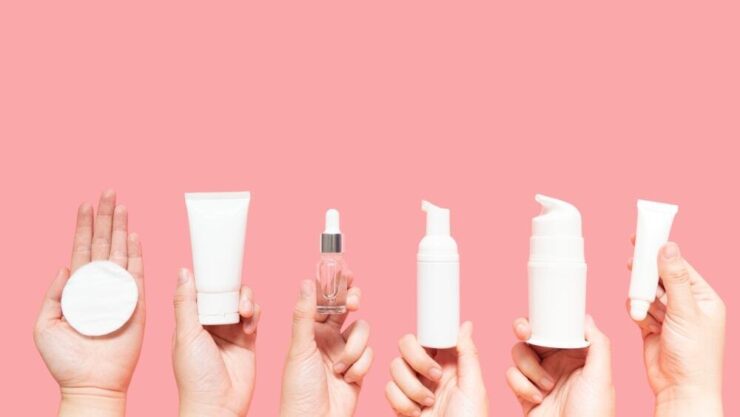If you’re thinking about starting your skincare line, private labeling is a great way to get started. Private-label skin care products are pre-made formulations that you can put your label on and sell under your own brand. This allows you to enter the dermis care industry without the high costs and time investment of creating your own formulas from scratch. In this guide, we’ll go over everything you need to know to get started with private-label skin care in 2024.
Step 1: Determine Your Target Market
Before starting a business, it’s important to have a clear understanding of your target market, and the dermis care industry is no exception. When it comes to offering skin care private label products, identifying your target market is crucial for success. Knowing who your ideal customer is can help you choose the right products to offer, create marketing materials that speak to their needs, and build a loyal customer base.
When determining your target market for skin care private label products, consider factors such as age, skin type, dermis concerns, and lifestyle. For example, if you want to offer products for mature skin, your target market may be women over 50 who are interested in anti-aging dermis care. On the other hand, if you want to offer products for oily skin, your target market may be younger individuals who struggle with acne and oily dermis.
By taking the time to determine your target market, you can tailor your skincare private-label products to meet their needs and preferences. This can help you stand out in a crowded market and build a loyal customer base that values the quality and effectiveness of your products.
Step 2: Find a Private Label Skin Care Supplier
Once you have a clear understanding of your target market, it’s time to find a private-label skin care supplier. Many companies specialize in private-label skin care products, so it’s important to do your research and find a supplier that meets your needs. Look for a company with a good reputation, high-quality products, and competitive pricing.
Step 3: Select Your Products

Selecting the right products is a crucial step when starting a skin care private label business. It’s important to choose products that not only meet the needs of your target market but also align with your brand’s values and mission. Your product selection will be the cornerstone of your brand, so it’s essential to choose products that you are confident in selling.
When selecting your products, consider your target market’s needs and preferences. Research what types of dermis care products are popular in your target market and consider offering products that address common skin concerns. For example, if your target market is individuals with a sensitive dermis, you may want to consider offering gentle, fragrance-free products that won’t irritate their skin.
It’s also important to consider the quality of the products you choose. You want to offer products that are effective and safe for your customers to use. Look for suppliers that use high-quality ingredients and have a good reputation in the industry.
Finally, consider the branding and packaging of the products you choose. Make sure they align with your brand’s values and appeal to your target market. Eye-catching and unique packaging can help your products stand out on store shelves and online marketplaces.
Step 4: Create Your Branding

Creating strong and recognizable branding is crucial when starting a skin care private label business. Your branding should be consistent across all platforms and products and should communicate your brand’s values and mission. It’s important to take the time to create a brand that will appeal to your target market and set you apart from your competitors.
Start by developing a brand identity, including a name, logo, and tagline. Your brand name should be easy to remember and reflective of your products and values. Your logo should be simple, unique, and easily recognizable, and your tagline should communicate what your brand is all about.
Once you have your brand identity, it’s important to create consistent branding across all platforms, including your website, social media, and product packaging. Use your brand’s colors, fonts, and imagery to create a cohesive look and feel that customers will recognize and trust.
Step 5: Market Your Products

Marketing your skin care private label products is key to getting your brand noticed and attracting customers. There are many ways to market your products, including social media advertising, influencer partnerships, email marketing, and content marketing. Choose the marketing strategies that align with your brand’s values and target market, and track your results to see what’s working and what’s not. Be sure to create compelling product descriptions and visually appealing product images that will catch the eye of potential customers. Consistent marketing efforts can help build brand awareness and drive sales for your dermis care private label business.
Step 6: Grow Your Business

Growing your skin care private label business is an exciting and challenging task. As your business gains traction, you may want to consider expanding your product line, offering wholesale options, or even opening a brick-and-mortar store. It’s important to keep an eye on industry trends and listen to customer feedback to ensure your business stays relevant and successful.
Expanding your product line can be a great way to meet the evolving needs of your customers and grow your customer base. Consider introducing new products that align with your brand’s values and appeal to your target market. You can also explore the option of offering wholesale options to other retailers or even opening a physical storefront to increase visibility and sales.
Conclusion
Private-label skin care is a great way to enter the dermis care industry without the high costs and time investment of creating your own formulas from scratch. By following these steps, you can get started with private label skin care in 2024 and create a successful skincare line that speaks directly to your target market.

